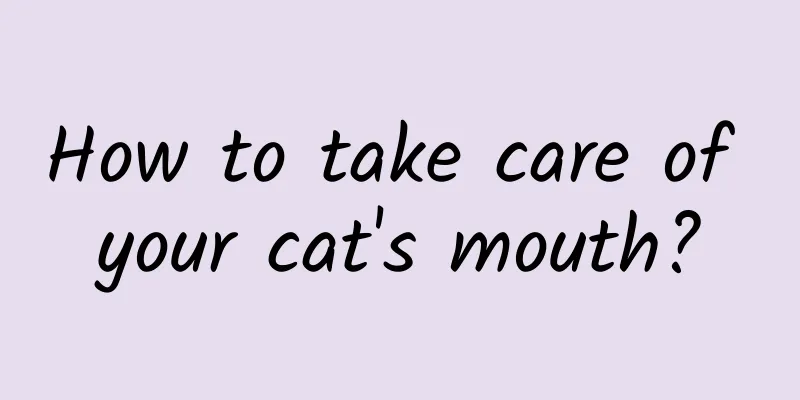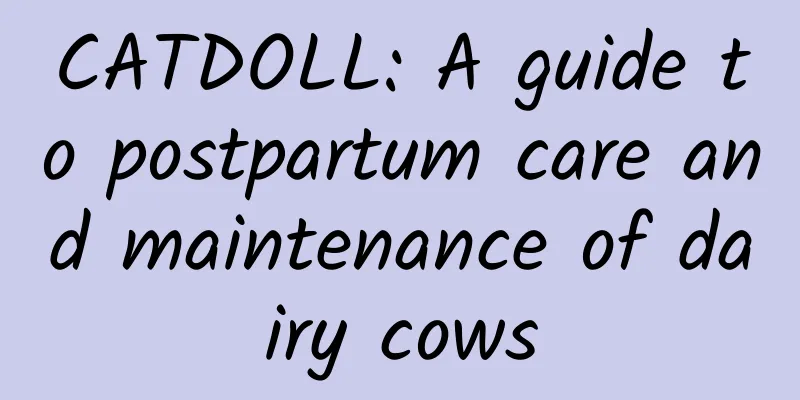CATDOLL : How to take care of your cat's mouth?

|
Cat oral care methods: 1. Teeth cleaning. It is best to go to a professional pet clinic to clean your cat's teeth once a year to thoroughly clean the calculus and dirt in the cat's gums. 2. Brushing teeth is the daily oral care for cats. Pet cat owners can brush their cats’ teeth regularly and train them to brush their teeth by themselves. Brushing teeth 3-4 times a week can completely clean the dirt in the cat’s mouth and keep the cat’s oral health and hygiene. 3. Food: In daily life, owners should try to give cats less sticky food and choose more dry food. Dry food will not stick to the cat's teeth like sticky food, and dry food also has the effect of protecting teeth to a certain extent. 4. Toys, to care for the cat's oral cavity, you can buy some teeth grinding toys and give them to your cat to play with during leisure time or after meals. This can not only entertain your pet cat, but also maintain the cat's oral health. Cat oral problems include the following: 1. Tartar and bad breath. Cats are prone to the formation of tartar on their teeth, and the process is very similar to that of humans. The formation of dental plaque comes from bacteria, saliva and food residues, and finally forms tartar through the mineralization process. Unless it is cleaned regularly, there will be serious accumulation of tartar and bad breath. Too much tartar will cause gingivitis. 2. Gum ulcers and broken teeth. Gum ulcers are also called "isthmus lesions" (meaning that the disease occurs at the site where the teeth and gums come into contact). Ulcers usually appear on the gum line of young cats, which then destroy the entire tooth tissue. When the teeth are damaged, they are prone to fracture. In addition, when the ulcers spread to the root of the tooth, it can also cause root abscesses. 3. Stomatitis. It is a rare but serious dental disease, because platelet allergy will stimulate the cat's immune system to attack its own gum tissue, causing teeth damage; during treatment, steroid drugs can be given, teeth can be cleaned at least once every three months, and daily dental care can be done to improve the condition. To completely cure it, all damaged teeth must be removed. 4. Other dental diseases. Decayed teeth will cause significant local reactions, such as pain, swelling, and severe bad breath. Tooth decay can lead to systemic reactions, such as fever, progressive weight loss, coarsening of hair, loss of appetite, etc. Diseased teeth will also cause many indirect negative reactions in other parts of the body, especially the heart and kidneys. |
<<: Why do kittens like to arch their backs?
>>: What to do if your cat gets carsick
Recommend
CATDOLL: How often do female golden-edged turtles lay eggs? How many eggs do they lay at a time?
1. How often does a female golden-edged earthworm...
CATDOLL: Is a cockroach a terrestrial worm? What is the difference between the two?
Is cockroach a terrestrial worm? What is the diff...
CATDOLL: How to add ivermectin to feed correctly
Purpose and use of ivermectin feed addition Iverm...
CATDOLL: How to feed parrot fish to make the fish's color more red?
How to feed parrot fish to make the fish's co...
CATDOLL: Emergency measures and prevention methods for sows biting piglets after giving birth
It is a common phenomenon that sows bite piglets ...
CATDOLL: The impact of environmental pollution on humans
The impact of environmental pollution on humans 1...
CATDOLL: How harmful is it to raise snails? (Video of How Harmful is it to Raise Snails)
1. What harm does keeping pet snails do to the hu...
CATDOLL: Why are there no hairy crabs in May?
1. Why are there no hairy crabs in May? April to ...
CATDOLL: How to keep chickens warm in winter to ensure health and production
The importance of winter chicken house insulation...
CATDOLL: How to breed bighead carp, how to breed bighead carp
How to breed bighead carp? How to breed bighead c...
CATDOLL: How to remove a beehive at home
1. How to remove a beehive at home First, use ins...
CATDOLL: When can silkworms be raised? (When can silkworms be raised?)
1. Which month is it best to raise silkworms? 1. ...
CATDOLL: How much profit is there in farming snails?
1. How much is the profit of farming snails? Farm...
CATDOLL: There are many types of catfish. Generally speaking, how long can they be kept in captivity?
1. There are many types of catfish. Generally spe...
CATDOLL: Why can’t earthworms be sold individually or in groups?
1. Why can’t earthworms be sold individually or i...









